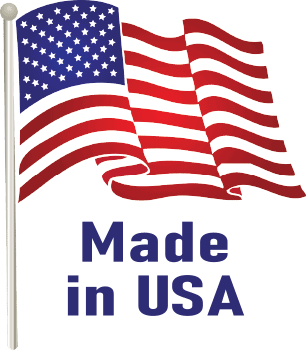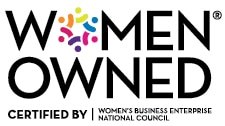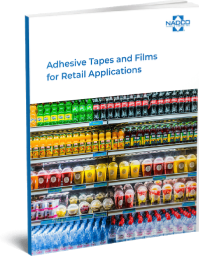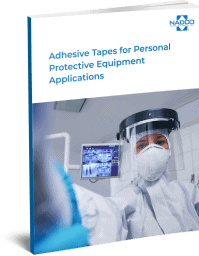Antimicrobial Film
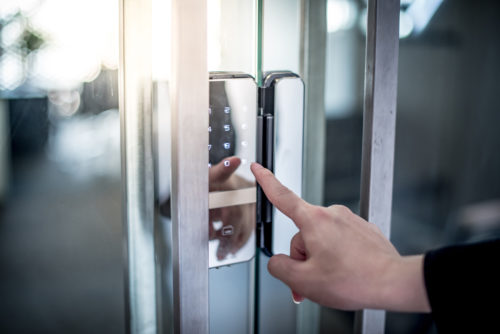
NADCO offers antimicrobial film as a coating which can be placed over any substrate. The material is resistant to the growth of bacteria, fungi, and mildew, which makes it a popular choice for industrial applications where cleanliness is a priority. By design, antimicrobial film fights the propagation of harmful bacteria and other biological contaminants. These films provide a barrier that limits the transmission of harmful microbial agents between humans and equipment.
What are Antimicrobial Films?
Antimicrobial film is a top-coat layer that can be added to the surface of any number of materials, including adhesive materials such as labels and tape. The film contains a powerful and safe bacteria-blocking agent called Agion, which is produced by the combination of silver ions and zeolite.
Agion is a natural solution that prevents the growth of unwanted bacteria by preventing bacterial cell multiplication. The solution is safe to touch, non-toxic, and non-irritating. When the silver ions are paired with zeolite, Agion is able to stop cell metabolism and growth, which helps to stop the transmission of biological contaminants.
Antimicrobial Film Features
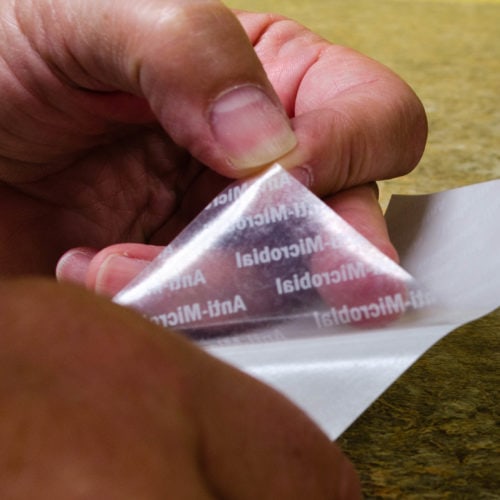 The use of antimicrobial film offers valuable benefits to a wide range of situations. The film can be easily placed onto almost any surface and remains resistant to both bacteria and wear over time. There are many benefits to using antimicrobial film, including:
The use of antimicrobial film offers valuable benefits to a wide range of situations. The film can be easily placed onto almost any surface and remains resistant to both bacteria and wear over time. There are many benefits to using antimicrobial film, including:
- Ability to fight and reduce the spread of bacteria and other biological contaminants
- Added safety for workers, customers, and products
- Compatible with a wide range of surfaces
- Resistance to water and wash
- Effective for use across a range of temperatures
- Non-toxic and safe for the environment
- Long-lasting performance
- Durable and tear-resistant
Antimicrobial Film Industry Applications
 The spread of bacteria, mildew, and mold can be dangerous to both people and products and the transfer of microorganisms can often occur very quickly, making it essential to take any possible precautions that may reduce or remove microorganisms from shared surfaces. One of the simplest and most effective way to prevent the spread of pathogens is the use of antimicrobial film. As such, these films see use in industries such as medical, food and beverage, HVAC, technology, appliances, and more.
The spread of bacteria, mildew, and mold can be dangerous to both people and products and the transfer of microorganisms can often occur very quickly, making it essential to take any possible precautions that may reduce or remove microorganisms from shared surfaces. One of the simplest and most effective way to prevent the spread of pathogens is the use of antimicrobial film. As such, these films see use in industries such as medical, food and beverage, HVAC, technology, appliances, and more.
Some of the most common applications for antimicrobial films include:
- Covering frequently used and shared surfaces, such as countertops and desks
- Additional coating on protective tapes and labels
- Protecting communal building materials, tools, or other shared equipment
- Enhancing insulation solutions with antimicrobial properties
- Preventing biological contaminant transmission in HVAC systems
- Lining cleanroom equipment such as touch screens, surgical trays, surfaces, and supplies/equipment
- Packaging lining for medical equipment and pharmaceuticals
- Covering shared keypads, switches, and touchscreens on appliances and equipment

Antimicrobial Films From NADCO
At NADCO, our years of experience have positioned us as a leader in the adhesive and tape industry. Our state-of-the-art facility allows us to provide comprehensive standard solutions and accommodate any custom requests for industrial labels, safety decals, customized stickers, adhesives, and more. We can enhance a wide variety of products with antimicrobial film, which helps to prevent the spread of bacteria and other dangerous pathogens.
We understand the important benefits that antimicrobial film provides for many important industrial applications, and our design team is available to work directly with every customer to ensure all their safety needs are met. Contact us today to see how the use of antimicrobial film can help prevent the spread of harmful biological pathogens in your operation.


